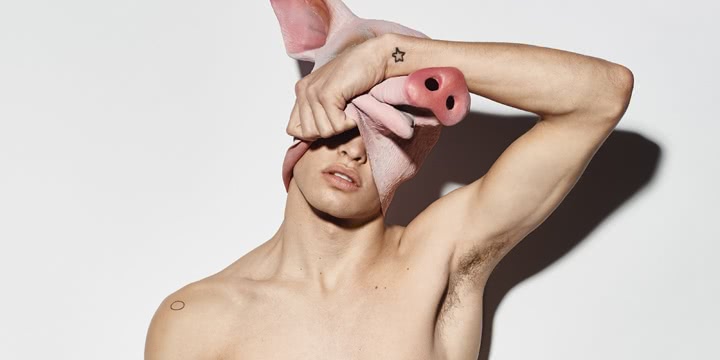AMidsummer Night’s Dreamhas a curious reputation.
It’s part fantasy, part comedy, part drama, renowned for producing some rather questionable costuming over the ages. It’s also a tragic counterpart to the film Dead Poets Society, and in today’s age of incremental equality, has some rather dubious character motivations. Yet out of all the works in Shakespeare’s canon, it remains one of the most charming and frequently performed, even some 425 years after its debut. Indeed, Emma Harvie thinks it may be exactly those disparate elements that have assured the story’s enduring appeal.
“It’s mostly seen as a comedy: it’s light and you can see yourself in the characters,” Harvie says, “but you also have the fantasy world of the fairies. It’s kind of relatable. We’ve been talking about this a lot in rehearsal: how within the story you have different strands.
“Hermia and Lysander are kind of like Romeo and Juliet, but with somewhat of a happier ending. It’s the themes of Shakespeare’s tragedies, but with a nice comic spin where everyone turns out OK. Well, if you ignore the fact that with Theseus and Hippolyta, he kind of wins her using the sword. He forces this Amazonian queen to be his wife, which is a bit troubling today! But I think it’s fun, and because you do have all the different worlds the language isn’t always as heavy. You have the fairies, the Rude Mechanicals and the lovers: there are so many subplots that it’s easy to watch.”
Harvie herself plays one of the Rude Mechanicals, Robin Starveling. The Mechanicals are a troupe of performers within play, roles that in Elizabethan times were performed by clowns. Indeed, the lead Mechanical, Bottom, is famously bestowed with the head of a donkey. The potential for ass jokes is limitless.
“It’s pretty different!” Harvie laughs of undertaking a comedic role. “I’ve definitely been struggling with this idea of how the Mechanicals are the funny part of the play, and we’ve been exploring that in rehearsal. It’s about just letting go and playing it for what it is, because it lends itself to quite a few different versions.
“It can be full of gags and very funny, but gaggy is maybe not what we want for this production. It’s not what helps tell the story the best way. It’s tough, because it’s a small part – there are a few of the Mechanicals who don’t have as much to say, though we’re onstage as much as everyone else. So when we do open our mouths, we have to be familiar with our voices as the character, and try and keep it funny without the pressure of knowing people have to laugh every time you say something. We’ve tried to find the humour quite organically. I’m also surrounded by a bunch of really funny actors, which makes it easier.”
Certainly it doesn’t hurt to have some theatre veterans at your disposal. As one expects from the Sydney Theatre Company, the quality of the production’s cast is exceptional, and the version is set to be helmed by one of our latest stage wunderkinds, Kip Williams.
“I’m a relatively young actor in this industry, this is my first professional show, and I’m learning a lot from the actors around me,” says Harvie. “You learn different things with each director: you learn about your own sense of acting, and as an actor who at this point in my life wants to be a theatre actor, I’m learning a lot from the other actors in the cast – Paula Arundell, Bob Menzies, Susan Prior and Josh McConville.
“Also, Kip is a really humble, easy-going, generous director. He has time for everyone, and is extremely busy, so I don’t know how he does it all. When we came in on day one, he and Bob Cousins [set design] and Alice Babidge [costume design] had a very strong, clear vision, so it’s quite easy to fit into that and then work with them on making the show that they have in their minds.
“The play is quite bitsy, in the sense that there are 12 or 13 of us in the cast, but some of us don’t have any speaking scenes together. During the time when we’re not sure if it’s working, we’ve all learned to trust in Kip: he knows what he’s doing.”
At the risk of putting carts before horses, this production of Midsummer already has all the hallmarks of being a season stand-out. With a well-versed cast and impressive production values it will almost certainly be a hit, though perhaps not in the guise that most patrons might be expecting.
“When I first performed it I was at drama school, and we had too many people and not enough space to do a full production, so we just did scene work.
“Our production was very much about playing the humour of the scene. But now we have quite a different kind of realisation of Midsummer than I think a lot of people would have seen in the past. We’re definitely playing with some darker themes, so don’t go in expecting to see what you’ve seen before.”
[A Midsummer Night’s Dream by Cybele Malinowski]
A Midsummer Night’s Dream plays at theDrama Theatre, Sydney Opera House,until Saturday October 22.
































